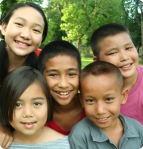By Kathy Lally, washingtonpost.com

TBILISI, Georgia — Eight years ago this small, mountainous country, driven by peaceful revolution, picked itself up from post-Soviet chaos and began transforming into a Western state. Now, in the week ahead, it confronts a critical test of how well its young democracy can prevail over an authoritarian past.
Georgia’s progress is being measured by the parliamentary elections scheduled for Oct. 1, and the outcome will have profound implications not only for this nation but also for others struggling to build free societies after a history of corruption and repression.
Internationally, the government had been mostly viewed as sure-footed — until last week, when a scandal erupted over evidence of systematic abuse and torture in the nation’s prisons. Videos made by an insider and broadcast on national television showed guards admitting a line of new inmates to a prison — each methodically beaten, one by one, with the casualness of getting their papers stamped. Other videos showed prisoners sodomized with truncheons and broomsticks, taunted as they cried or begged for mercy.
Thousands of shocked and furious citizens took to the streets, the interior minister and prison officials were forced to resign, several guards and officials were arrested, and Georgians young and old demanded to know how their government could have ignored persistent reports of brutality and wrongdoing.
“For many years, we have been talking about illegal treatment,” said Tamar Chugoshvili, chairwoman of the Georgian Young Lawyers Association. “The government has not investigated, and nobody really cared about it.
“They have accomplished many very good things, but they have failed to build a democratic system and protect human rights,” Chugoshvili said. “A small group of people in the executive branch makes all the decisions, and there is no check or balance on this power.”
The United States has invested deeply in Georgia and democracy, providing $3.37 billion in aid from 1992 to 2010, putting the country’s 4.5 million population high on the list of per capita assistance, according to the Congressional Research Service.
Georgia, perched in the Caucasus Mountains in the shadow of Russia and Iran, has been a staunch U.S. ally, sending troops to Afghanistan and providing energy security with a pipeline that takes oil from Azerbaijan through Georgia and on to Turkey. Georgia values the alliance, and government and opponents alike have been spending freely on lobbying in Washington.
The World Bank this year published a 100-page book describing Georgia’s reforms so that other countries might benefit from its experience.
Though President Mikheil Saakashvili and his circle have eliminated day-to-day corruption, turned the despised police into a trusted force and made government services citizen-oriented and easy to obtain, they have not permitted development of political competition, their critics say.
The Oct. 1 parliamentary elections bring the first serious opposition, a spectrum of parties called Georgian Dream united behind Bidzina Ivanishvili, a 56-year-old political novice whose $6.4 billion fortune equals almost half of the country’s gross domestic product.
The elections have been preceded by charges of violations from both sides, and the government has levied huge fines on Ivanishvili and his team — mounting to more than $125 million, he said. On Monday, Georgian Dream officials said police arrested about 20 of their members Sunday without clear charges; police officials said those arrested had harassed election officials or resisted and attacked officers when stopped for auto violations such as not wearing seat belts.
The news media are mostly partisan and dominated by the government.
“There is skepticism about the ability to manage political competition,” said Ghia Nodia, chairman of the Caucasus Institute for Peace, Democracy and Development. “Political opponents don’t just want to win the election, they want to destroy the government and put people in prison.”
‘Georgians are dreamers’
Last week found Ivanishvili traveling into the mountains beyond the capital, Tbilisi, to the poverty-stricken Tianeti region. Official statistics put national unemployment at 16 percent, but the real rate is double that or more, Nodia said. Anyone with two acres of land is considered employed, and Georgians say that means if you own two fruit trees and can sit on the curb selling a basket of apples, you have a job.
Getting to Tianeti required driving about 15 miles of what was once a road but is now little more than a winding, bone-jarring path strewn with gravel here and there. Along the edge of a field, a horse pulled an elderly couple in an ancient cart, the woman so absorbed in talking on her cellphone that she paid no notice to a clutch of sport-utility vehicles stirring up dust.
“Georgians are dreamers,” Ivanishvili told an appreciative crowd in Tianeti. “We should try to make our dreams come true.”
He offered plans to invest in agriculture, create jobs, promote small business — and save Georgia’s dying villages, responding to cheers with an air of modesty. “Please don’t shout my name,” he said.
Tamuna Zedginidze, a 21-year-old villager wearing jeans and a blue Georgian Dream T-shirt, had come with her extended family of seven from their hamlet 10 miles away.
“I will vote for him,” she said, “because I think he can end the injustice. No one in our family works. We are full of energy, but we cannot use it. We want a better future for our kids.”
The family keeps a cow, sheep, some pigs. There is no school, and women move to town with their children when they reach school age.
“Why must we leave, when it’s the most beautiful place in Georgia?” she asked.
Later, in an interview, Ivanishvili said Georgia needs to solve its internal problems before becoming a reliable part of Europe and NATO, and repairing relations with Russia. “If we build a country with a foundation of democratic institutions,” he said, “we’ll get more attention from America and Europe.”
The Rose Revolution of 2003, set off by citizens infuriated by rigged parliamentary elections and fed up with inept government, brought the reform-minded Saakashvili into the presidency in 2004. His term expires a year from now, when the system changes from a strong presidency to one in which power rests with the prime minister, who is to be elected by the largest faction in Parliament.
Ivanishvili intends to fill that post. So does Vano Merabishvili, who was appointed prime minister in June by Saakashvili, apparently not only to give Merabishvili an electoral advantage but also to quell rumors that the president wanted the job himself, in a Vladimir Putin-like maneuver to stay in power.
Saakashvili’s United National Movement party dominates Parliament with 79 percent of the seats, allowing unquestioned ability to change the constitution. Businesses are reluctant to support the opposition because they fear damaging relations with the ruling party, Nodia said. A recent study of Tbilisi courts by the Lawyers Association, Chugoshvili said, found that judges granted 100 percent of prosecutors’ motions.
Saakashvili moved rapidly to stem the damage from the prison crisis last week, putting George Tugushi, the country’s human rights ombudsman and a persistent critic of the prison system, in charge of it.
‘Voters have a clear choice’
Giga Bokeria, the national security secretary and a key Saakashvili adviser, said he shared the nation’s shock and outrage, and he acknowledged the government’s shortcomings.
“We as a government made a grave mistake when we did not properly evaluate the signals coming from the ombudsman and other civil society groups about the systemic problems in the penitentiary system,” Bokeria said.
Georgia is a democracy, he said in an earlier interview, where the government depends on voters. The country has made huge progress, he said, and more lies ahead.
“There’s a very vigorous and active campaign going on now, and no one is being suffocated,” said Bokeria, who supervises an interagency group charged with ensuring fair elections. “Voters have a clear choice.”
The day after the prison videos were shown, Chugoshvili still looked pale from shock.
“They painted the prisons and put the guards in very nice shirts,” she said. “They have nice little stores where prisoners can shop. They put up posters reminding everyone of their rights. The streets are safe day or night.
“But unless we develop a system of controls, you’ll be safe from the criminals but not from the state.”










.jpg)








.jpg)

